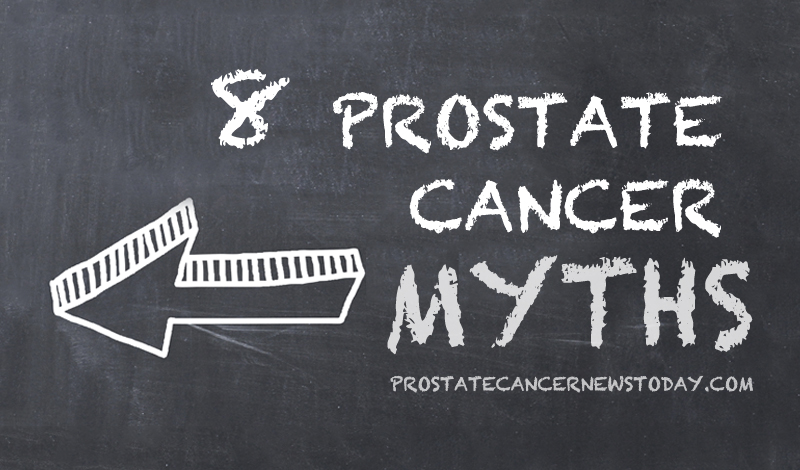Although prostate cancer is a disease we hear about a lot, there are still many misconceptions about it. To help you demystify the disease we’ve put together a list of eight prostate cancer myths you usually know about. (source: Prostate Cancer Foundation website):
1. Prostate cancer only affects old men: A lot of people seem to believe that only elderly men get prostate cancer. That’s completely wrong, though it is true that the older you are, the more chance you have of being diagnosed with prostate cancer. However, you can get prostate cancer even at a younger age.
2. I don’t have any prostate cancer symptoms, so I can’t have it: Incorrect. This is a type of cancer which typically has fewer symptoms, which means not all men will experience symptoms. Since this is a disease which can affect men differently, according to its symptoms, the diagnosis is usually made when your doctor detects some irregularity when you go for a normal appointment for a check-up. Check out some prostate cancer symptoms here.
3. I’m not worried about prostate cancer because it’s a slow growing cancer: There have been 25 different types of prostate cancer discovered by PCF-supported researchers. So while it is true that prostate cancer may be a slow growing cancer, this is not 100% correct, because it can depend on the type of cancer you have been diagnosed with. Always check with your doctor and make sure you have proper treatment for the type of prostate cancer you’ve developed.
4. Prostate cancer doesn’t run in my family, so I don’t have to worry: One of the prostate cancer risk factors is genetics and family history, that’s right. If you have a male in your family – for example, a brother, father or even cousin – who had prostate cancer, your chances of developing the disease doubles up. With that said, this doesn’t mean only men with prostate cancer in their families will develop the disease. 1 out of 6 American men will be diagnosed with prostate cancer in their lifetime, even without the genetic link.
5. The PSA test is the cancer test: Wrong. These tests measure prostate-specific antigen levels in the prostate, but they do not diagnose the disease. PSA is produced by the prostate in response to a number of problems in the gland, such as prostatitis, BPH or, in the worst case scenario, cancer. Consider it a warning sign and be alert.
6. Vasectomies cause prostate cancer: Having a vasectomy doesn’t mean you will get prostate problems. Vasectomy has not been linked to increasing a man’s chances of getting prostate cancer.
7. If I get treated for prostate cancer, I will most certainly become impotent or incontinent: While erectile dysfunction and incontinence are some side effects following surgery or radiation therapy for prostate cancer, this doesn’t mean every man will experience complications. Numerous therapies can improve erectile function and control incontinence following treatment and nerve sparing surgical procedures have improved outcomes for patients as well.
8. Sexual activity increases the risk of developing prostate cancer: The frequency of your sexual activity or the amount of times you ejaculate used to be pointed as one of prostate cancer risk factors. But actually, studies show that men who ejaculate more frequently had a lower risk of developing prostate cancer.
Learn more about prostate cancer: http://bit.ly/1MlKABv
Prostate Cancer News Today is strictly a news and information website about the disease. It does not provide medical advice, diagnosis or treatment. This content is not intended to be a substitute for professional medical advice, diagnosis, or treatment. Always seek the advice of your physician or other qualified health provider with any questions you may have regarding a medical condition. Never disregard professional medical advice or delay in seeking it because of something you have read on this website.

